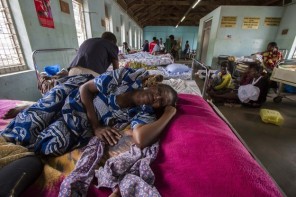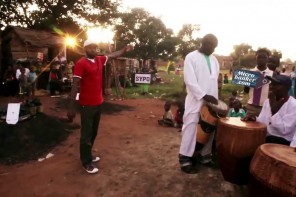Ugandan journalist Allan Brian Ssenyonga, a frequent guest writer on this blog, says Ugandan journalists naively assume press badges and working for the public interest will keep them safe. It is, alas, a deadly mistake.
A colleague of mine at The New Times, a Rwandan daily for which I am a freelance columnist, once told me that a journalist is supposed to look for the news, not make it.
This is usually a reminder for scribes to stay away from scandal. But it often implies steering clear of anything that could angerthe powers that be. If you don’t, the state will then feel “compelled” to “restore order” by dealing with you in a manner that often brings business on the desks of Human Rights Watch (HRW), Amnesty International (AI) and the Committee to Protect Journalists (CPJ) among others.
Recently, Uganda has shown the world how easy it is to bully the press – with or without the pulpit of the state. Two Ugandan journalists were recently murdered in a space of three days. Paul Kiggundu, a freelance journalist, was beaten to death by motorcycle drivers. He was attacked while filming some of them demolishing the house of another driver, whom they accused of committing murder and robbery.
Three days later, Dickson Ssentongo was beaten and killed by unidentified assailants while on his way to work at Prime Radio in Mukono district. It was reported that he was beaten with iron bars and dragged to a nearby cassava field at 5 a.m.
In both cases the killers knew the identity of their victim. Kiggundu had identified himself but was still beaten to death. Why? Shoulnd’t his identity as a journalist have protected him from this?
Many journalists including myself often naively believe that our identity can save us when things get out of hand. That’s only rarely the case anymore – and even rarer still in Uganda, where identity as a journalist seems to this journalist to count for nothing.
While covering last year’s September riots in Kampala, I carried along my laptop bag, a Canon digital camera, a voice recorder plus and a press badge – what I thought would be my magic ticket out of trouble. I was wrong. Anyone who looked like a reporter was a target. Armed men reportedly also joined in.
Kiggundu died because he, too, believed in the power of saying, “I’m press!” Moto drivers in Uganda are famously short-tempered; recording them in an illegal act of demolishing a person’s house was plain naivete on Kiggundu’s part, and he paid with his life for this “mistake.” His identity as a journalist was of consequence to his subjects-turned-assailants only because it threatened them.
In fact, as a radio journalist – more Ugandans get their news from the radio than any other source – he was an even bigger risk. And so are other radio journalists, who should never forget that the press are playing a political game, even if they don’t want to. In the central Buganda region, there are over 100 radio stations, but the only one that counts is CBS, which belongs to the Kingdom of Buganda — and which was closed indefinitely during the September 2009 riots, sparked by the government’s face-off with the Bugandan king.
Actually not far from where Kiggundu was killed, President Museveni was once assured by a crowd that the only radio they listened to was CBS, and he should reopen it. Four stations were shut down last year during the riots, allegedly for inciting the violence. All but CBS were reopened.
At the same time it was closing down radio stations, the government banned live radio debates, which had become popular as “people’s parliaments.” If anyone doubts their power, they need only remember Betty Nambooze, a frequent and moving guest on these now-banned debates who recently trounced a government-sponsored candidate in a local election. Not that she was allowed to take office: a lawsuit filed over her win dragged on in court for most of what would have been her parliamentary term.
Ssentongo also brought politics to the radio and possibly even considered standing for office himself. Perhaps Ssentongo, too, forgot that when the press gets political, it is often the journalist who loses – in this case his life.
The government has done a great job of weakening the media through the threat of closure, thanks to a government-happy Media Council. Self- censorship and corporate sponsorship have conspired to keep journalists away from investigative work and confined to press conferences.
With presidential and parliamentary elections set for February and March 2011, tensions are steadily rising — and journalists are likely to make up some of the violence statistics. The recent ruling party primaries foreshadowed that violence: One photojournalist, Arthur Kintu was slapped — blood was drawn — by a candidate after he tooking a photo of the politician who kept asking the journalist, “Do you know who I am?” — a clear indication that the assaulting politician’s identity was more important than that of a journalist on duty.
Barely two months ago, the same politician, on July 17th assaulted a Radio One journalist Ivan Kalanzias he asked for his comment about a meeting between him and the Muslim leader which had been cancelled.
Much as people like Tom Rhodes, CPJ’s East Africa consultant, may call for justice, journalists too need to work on their image and identity. Their identity is too weak and insignificant next to the power of the state. And when push comes to shove – literally – it is never enough to save them.
Allan Brian Ssenyonga is a Ugandan freelance journalist living in Rwanda. You can send him an email here.



